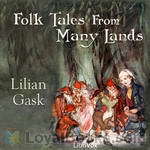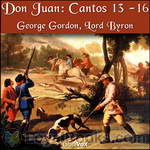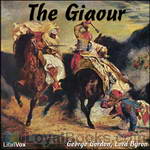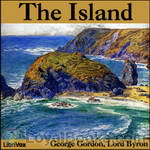|
Books Should Be Free Loyal Books Free Public Domain Audiobooks & eBook Downloads |
|
|
Books Should Be Free Loyal Books Free Public Domain Audiobooks & eBook Downloads |
|
Poetry |
|---|
|
Book type:
Sort by:
View by:
|
By: Lewis Carroll (1832-1898) | |
|---|---|
 Valentine
Valentine
This poem is taken from Phantasmagoria and Other Poems by Lewis Carroll. | |
 The Hunting of the Snark (version 4)
The Hunting of the Snark (version 4)
The Hunting of the Snark is a poem written by English writer Lewis Carroll. It is typically categorised as a nonsense poem. The plot follows a crew of ten trying to hunt the Snark, which may turn out to be a highly dangerous Boojum. The only one of the crew to find the Snark quickly vanishes, leading the narrator to explain that it was a Boojum after all. As you would expect! - Summary by Craig Franklin | |
By: Lilian Gask | |
|---|---|
 Folk Tales from Many Lands
Folk Tales from Many Lands
A collection of poetic folk tales from all over the world. (Kalynda) | |
By: Lilian Whiting (1847-1942) | |
|---|---|
 From Dreamland Sent
From Dreamland Sent
This is a volume of poetry by Lilian Whiting. As the title of the volume already hints at, the poems share a dreamy atmosphere, and in that are a typical example of American poetry of the end of the 19th century. - Summary by Carolin | |
By: Lizzie Doten (1827-1913) | |
|---|---|
 Poems from the Inner Life
Poems from the Inner Life
Collection of reflective poetry by celebrated medium and clairvoyant, Lizzie Doten. She claims these poems were sent by her 'inner heaven', often while she was in a trance. She credits some of the poems to the spirits of Poe, Burns and Sprague, with whose work she was, apparently, unfamiliar. | |
By: Lizzie Lawson and Robert Ellice Mack | |
|---|---|
 Christmas Roses
Christmas Roses
A beautiful collection of pretty little poems. | |
By: Lodovico Ariosto (1474-1533) | |
|---|---|
 Orlando Furioso
Orlando Furioso
| |
By: Lola Ridge (1883-1941) | |
|---|---|
 Sun-Up and Other Poems
Sun-Up and Other Poems
| |
 Train Window
Train Window
volunteers bring you 14 recordings of Train Window by Lola Ridge. This was the Weekly Poetry project for September 8, 2019. ------ Lola Ridge, born Rose Emily Ridge was an Irish-American anarchist poet and an influential editor of avant-garde, feminist, and Marxist publications. She is best remembered for her long poems and poetic sequences, published in numerous magazines and collected in five books of poetry. - Summary by Wikipedia | |
By: Lord Alfred Douglas (1870-1945) | |
|---|---|
 Placid Pug, and Other Rhymes
Placid Pug, and Other Rhymes
This is a collection of ten humorous verses by Lord Alfred Douglas. - Summary by Carolin | |
By: Lord Alfred Tennyson (1809-1892) | |
|---|---|
 Beauties of Tennyson
Beauties of Tennyson
A collection of Tennyson's poetry : 1 The Brook - 00:16 2 Song from "Maud" - 1:20 3 A Farewell - 2:34 4 Song from “Maud” - 3:26 5 Break, Break, Break - 4:53 6 From “Locksley Hall”- 5:43 7 Song from “Maud” - 6:43 8 Song from “The Princess” - 7:43 9 Lillian - 8:37 10 Ring out, Wild Bells - 9:52 11 From “The Princess” - 11:27 12 Song From “The Princess” - 12:43 13 From “Enoch Arden” - 13:58 14 From “Enoch Arden” - 15:36 15 The Charge of the Light Brigade- 16:56 16 From “The May Queen” - 18:51 17 Song from “The Princess” - 19:36 18 From “Harold” - 20:14 19 From “The Revenge” - 21:28 (From Sam Stinsson) | |
By: Lord George Gordon Byron | |
|---|---|
 Don Juan, Canto V
Don Juan, Canto V
Juan, captured by Turkish pirates and sold into slavery is bought by a beautiful Princess as her toy-boy. Dressed as an odalisque, he is smuggled into the Sultan’s harem for a steamy assignation. Unbelievably, Byron’s publisher almost baulked at this feast of allusive irony, blasphemy (mild), calumny, scorn, lesse-majeste, cross-dressing, bestiality, assassination, circumcision and dwarf-tossing. This was the last Canto published by the stuffy John Murray (who had, however, made a tidy fortune on the earlier parts of the Epic)... | |
 Don Juan, Cantos 13 -16
Don Juan, Cantos 13 -16
These are the last four Cantos of his mock epic that Byron completed in the year before his death at the age of 36 in Messolonghi, Greece, where he had gone to fight for the nationalists against the Ottoman Empire. Juan, now in England, is invited to spend the autumn with a hunting party at the ancient country seat of Lord Henry and Lady Adeline Amundeville. There, he meets the most intriguing of the Byronic heroines, Aurora Raby, and is visited by a ghost with ample breasts (!). That is the narrative outline but hardly the focus of the last Cantos... | |
 Lara, A Tale
Lara, A Tale
This powerful poem narrates the fateful return of Count Lara to the British Isles after spending years abroad traveling the orient.Returning to his patrimony with a retinue consisting of one foreign-born page, Count Lara resumes the management of his landed estates. Lara's first efforts are crowned with success: only to be undermined by the jealousy and envy of his his peers. After a successful duel to defend his honour, the count becomes inexorably caught up in local blood-feuds; which quickly escalate to open warfare between his own followers and the private armies of his enemies... | |
 Childe Harold's Pilgrimage: Canto IV
Childe Harold's Pilgrimage: Canto IV
Childe Harold's Pilgrimage is a lengthy narrative poem in four parts written by Lord Byron. It was published between 1812 and 1818 and is dedicated to "Ianthe". The poem describes the travels and reflections of a world-weary young man who, disillusioned with a life of pleasure and revelry, looks for distraction in foreign lands. In a wider sense, it is an expression of the melancholy and disillusionment felt by a generation weary of the wars of the post-Revolutionary and Napoleonic eras. The title comes from the term childe, a medieval title for a young man who was a candidate for knighthood. Canto IV describes Harold's travels in Italy. | |
 Manfred
Manfred
Manfred is a dramatic poem in three acts by Lord Byron, and possibly a self confessional work. A noble, Manfred, is haunted by the memory of some unspeakable crime. In seeking for forgetfulness and oblivion, he wanders between his castle and the mountains. He has several encounters with the people who try to assist him, as well as spirits that rule nature and human destiny. The poem explores themes of morality, religion, guilt and the human condition. | |
 The Giaour
The Giaour
"The Giaour" is a poem by Lord Byron first published in 1813 and the first in the series of his Oriental romances. "The Giaour" proved to be a great success when published, consolidating Byron's reputation critically and commercially. | |
 The Island
The Island
Written late in his career, Byron's narrative poem The Island tells the famous story of the mutiny on board the Bounty, and follows the mutineers as they flee to a South Sea island, "their guilt-won Paradise." | |
 The Siege of Corinth
The Siege of Corinth
In this moving poem, Byron recounts the final, desperate resistance of the Venetians on the day the Ottoman army stormed Acrocorinth: revealing the closing scenes of the conflict through the eyes of Lanciotto - a Venetian renegade fighting for the Ottomans - and Francesca - the beautiful maiden daughter of the governor of the Venetian garrison: Minotti. | |
 The Works of Lord Byron. Vol. 2
The Works of Lord Byron. Vol. 2
| |
By: Lottie Brown Allen (1863-1935) | |
|---|---|
 Prairie Poems from the Sunflower State
Prairie Poems from the Sunflower State
Poems written by Kansas native Lottie Brown Allen expressing her love of her home state. - Summary by AnnaLisa Bodtker | |
By: Louisa May Alcott (1832-1888) | |
|---|---|
 Flower Fables
Flower Fables
Flower Fables is Louisa May Alcott’s first book, penned at 16 for Ralph Waldo Emerson’s daughter, Ellen. | |
 Three Unpublished Poems
Three Unpublished Poems
| |
 Song from the Suds
Song from the Suds
Librivox volunteers bring you 16 readings of A Song from the Suds, by Louisa May Alcott, author of novels like Little Women. This was the fortnightly poem for June 7-21, 2015. | |
 My Doves
My Doves
Librivox volunteers bring you eleven readings of My Doves, by Louisa May Alcott. This was the fortnightly poem for December 21, 2014 - January 4, 2015 | |
By: Louisa Parsons Stone Hopkins (1834-1895) | |
|---|---|
 Easter Carols
Easter Carols
This is a collection of Easter poems by Louisa Parsons Stone Hopkins. The poems all center around the Easter holiday, in both a religious as well as a more generally festive tone. - Summary by Carolin | |
By: Louise Imogen Guiney (1861-1920) | |
|---|---|
 England and Yesterday
England and Yesterday
Louise Imogen Guiney was an American poet, well-connected in the art of her time. Much of her life was spent in England, mostly at London and Oxford. This volume of poems contains, among other poems, 24 sonnets written in those two cities. - Summary by Carolin | |
 White Sail
White Sail
This is a collection of poems by Louise Imogen Guiney. The collection is split into four parts. After the titular poem, which is its own part, this volume contains ten narrative poems concerning some well-known and some lesser known legends. The third part of the volume is one of lyrics, and the fourth contains a number of sonnets. - Summary by Carolin | |
 Roadside Harp
Roadside Harp
This is a collection of poems by Louise Imogen Guiney. - Summary by Carolin | |
By: Lucy Larcom (1824-1893) | |
|---|---|
 Easter Gleams
Easter Gleams
This is a collection of Easter poems by Lucy Larcom. The poems cover the entire circle of religious holidays, customs, and bible verses around Easter. - Summary by Carolin | |
By: Lucy Maud Montgomery (1874-1942) | |
|---|---|
 Watchman and Other Poems
Watchman and Other Poems
While L. M. Montgomery is better known for her novels, such as Anne of Green Gables and Emily of New Moon, she also wrote hundreds of poems. Her love of beauty, nature, and the sea is evident in this, the only volume of her poetry published during her lifetime. | |
 Winter Day
Winter Day
Montgomery's poem on winter is an analogy for life, symbolizing the three life stages of youth, adulthood and old age. | |
 Harbour Dawn
Harbour Dawn
Librivox volunteers bring you 11 readings of Harbour Dawn by L. M. Montgomery. This was the fortnightly poem for November 23 - December 7, 2014. | |
By: Ludovico Ariosto (1474-1533) | |
|---|---|
 Orlando Furioso
Orlando Furioso
Charlemagne's nephew Orlando (AKA Roland) is driven insane by the infidelity of his beloved Angelica. Angelica's relationship with him and others loosely unifies multiple story lines to produce a rich tapestry of romance, fictionalized history, and pure fantasy. This romance-epic is a sequel to the less distinguished and unfinished romance Orlando Innamorato, by Mattteo Maria Boiardo. | |
By: Luis Vaz de Camões (1524-1580) | |
|---|---|
 The Lusiads
The Lusiads
The Lusiads (Os Lusíadas) is a Portuguese epic poem, written in the 16th century by Luis Vaz de Camões. The poem tells the tale of the Portuguese discoveries in the 15th and 16th centuries, specially the voyage to India by Vasco da Gama. Modelled after the classic epic tradition, Camões' Lusiads are considered not only the first literary text in Modern Portuguese, but also a national epic of the same level as Vergil's Aeneid. In the 19th century, Sir Richard Francis Burton translated Camões' Lusiads, in what he considered "the most pleasing literary labour of his life". | |
By: Lydia Maria Child (1802-1880) | |
|---|---|
 The Freedmen's Book
The Freedmen's Book
Lydia Maria Child, an American abolitionist, compiled this collection of short stories and poems by former slaves and noted activists as an inspiration to freed slaves. In her dedication to the freedmen, she urges those who can read to read these stories aloud to others to share the strength, courage and accomplishments of colored men and women. In that spirit, this recording aims to gives that voice a permanent record. As in the original text, the names of the colored authors are marked with an "x". | |
By: M. L. Hope | |
|---|---|
 Indian and Other Tales
Indian and Other Tales
| |
By: Maciej Kazimierz Sarbiewski (1595-1640) | |
|---|---|
 The Odes of Casimire, Translated by G. Hils
The Odes of Casimire, Translated by G. Hils
| |
By: Madame (Jeanne-Marie) Leprince de Beaumont (1711-1780) | |
|---|---|
 Think Before You Speak or, The Three Wishes
Think Before You Speak or, The Three Wishes
| |
By: Madison Cawein (1865-1914) | |
|---|---|
 September
September
Librivox volunteers bring you ten readings of September by Madison Cawein. This was the weekly poetry project for the week of September 21st, 2014. | |
 Don Quixote
Don Quixote
Madison Julius Cawein was born in Louisville, Kentucky. After graduating from high school, Cawein worked in a pool hall in Louisville as a cashier in Waddill's New-market, which also served as a gambling house. He worked there for six years, saving his pay so he could return home to write. His output was thirty-six books and 1,500 poems. His writing presented Kentucky scenes in a language echoing Percy Bysshe Shelley and John Keats. He soon earned the nickname the "Keats of Kentucky". Note: In Greek mythology, Hippocrene was the name of a spring on Mt... | |
 Time and Death and Love
Time and Death and Love
Madison Cawein was a poet from Louisville, Kentucky. His output was thirty-six books and 1,500 poems. His writing earned the nickname the "Keats of Kentucky". This Weekly poem was published in his book "Shapes and Shadows". (1898) | |
 Old Man Rain
Old Man Rain
Madison Julius Cawein was born in Louisville, the fifth child of William and Christiana Cawein. His father made patent medicines from herbs. Thus as a child, Cawein became acquainted with and developed a love for local nature. His output was thirty-six books and 1,500 poems. His writing presented Kentucky scenes in a language echoing Percy Bysshe Shelley and John Keats. He soon earned the nickname the "Keats of Kentucky". - Summary by Wikipedia | |
 End of Summer
End of Summer
Cawein's poetry allied his love of nature with a devotion to earlier English and European literature, mythology, and classical allusion. - Summary by Wikipedia | |
 Quarrel
Quarrel
This Weekly Poem is taken from The Poems of Madison Cawein, Volume II, New World Idylls and Poems of Love - Summary by David Lawrence | |
 Poems of Madison Cawein Vol 5
Poems of Madison Cawein Vol 5
This is Volume 5: Poems of Meditation and of Forest and Field of the collected works of Madison Julius Cawein, an American poet from Kentucky. It begins with the long poem Intimations of the Beautiful and falls into three sections: Poems of Meditation, Poems of Forest and Field, and Footpaths. - Summary by Larry Wilson | |
 Poems of Madison Cawein Vol 3
Poems of Madison Cawein Vol 3
This is Volume 3: Nature Poems of the collected works of Madison Julius Cawein, an American poet from Kentucky. It's arranged in four sections: In The Shadow of the Beeches, Tansy and Sweet-Alyssum, Weeds by the Wall, and A Voice on the Wind. It is dedicated to "Doctor Henry A. Cottel whose kind words of friendship and approval have encouraged me most when I most needed encouragement." - Summary by Larry Wilson | |
 After A Night Of Rain
After A Night Of Rain
volunteers bring you 15 recordings of After A Night Of Rain by Madison Cawein. This was the Weekly Poetry project for September 1, 2019. ------ An ode to September and the changing season. - Summary by David Lawrence | |
 Quiet
Quiet
volunteers bring you 28 recordings of Quiet by Madison Cawein. This was the Weekly Poetry project for May 17, 2020. ------ Cawein's description of "A log-hut in the solitude", taken from The Poems of Madison Cawein, Volume 3, Nature Poems. - Summary by David Lawrence | |
By: Marcus Clarke (1846-1881) | |
|---|---|
 Wail of the Waiter
Wail of the Waiter
volunteers bring you 12 recordings of The Wail of the Waiter by Marcus Clarke. This was the Fortnightly Poetry project for May 16, 2020. ------ A little something in anticipation of the day when things return to normal and folks everywhere, particularly in the hospitality industry, are back at work. - Summary by SonOfTheExiles | |
 In A Lady's Album
In A Lady's Album
volunteers bring you 17 recordings of In A Lady's Album by Marcus Clarke. This was the Weekly Poetry project for June 7, 2020. ------ Opinion is divided as to whether this poem by a notorious bohemian was sincere or whether he was trying to burnish his credentials as a lady’s man. How you find it might well determine how you read it... - Summary by SonOfTheExiles | |
 Mind's Eye
Mind's Eye
volunteers bring you 17 recordings of The Mind's Eye by Marcus Clarke. This was the Fortnightly Poetry project for June 28, 2020. ------ This Fortnightly Poem is taken from The Australian Edition of the Selected Works of Marcus Clarke | |
By: Margaret E. (Margaret Elizabeth) Sangster (1894-1981) | |
|---|---|
 Cross Roads
Cross Roads
| |
By: Margaret Sidney (1844-1924) | |
|---|---|
 Twilight Stories
Twilight Stories
| |
By: Margaret Steele Anderson (1867-1921) | |
|---|---|
 To The Fighting Weak
To The Fighting Weak
Margaret Steele Anderson was born in Louisville, Kentucky in 1867 and was educated in the public school of Louisville, with special courses at Wellesley College. From 1901 Miss Anderson was Literary Editor of the `Evening Post' of Louisville, and was known as one of the most discriminating critics of the South. She published only one volume of verse, "The Flame in the Wind", 1914. (David Lawrence | |
 To The Men Who Went Down On The Titanic
To The Men Who Went Down On The Titanic
Margaret Steele Anderson's tribute to the men left on board the doomed ship, some of whom followed the "Women and children first" tradition of the sea. - Summary by David Lawrence | |
 Michael Angelo's "Dawn"
Michael Angelo's "Dawn"
volunteers bring you 18 recordings of Michael Angelo's "Dawn" by Margaret Steele Anderson. This was the Weekly Poetry project for February 10, 2019. ------ Dawn is a sculpture by Italian Renaissance artist Michelangelo, executed for the Medici Chapel in the area of the tomb of Lorenzo de' Medici in Florence, Italy. It is part of a second pair , which followed Day and Night in his work on the Chapel. - Summary by Wikipedia | |
By: Maria Gowen Brooks (1795?-1845) | |
|---|---|
 Zophiel A Poem
Zophiel A Poem
| |
By: Maria L. Stewart | |
|---|---|
 Our Little Brown House, A Poem of West Point Written for the New Year's Festival at the Cadets' Sabbath-school of the Methodist Episcopal Church, January 1, 1879
Our Little Brown House, A Poem of West Point Written for the New Year's Festival at the Cadets' Sabbath-school of the Methodist Episcopal Church, January 1, 1879
| |